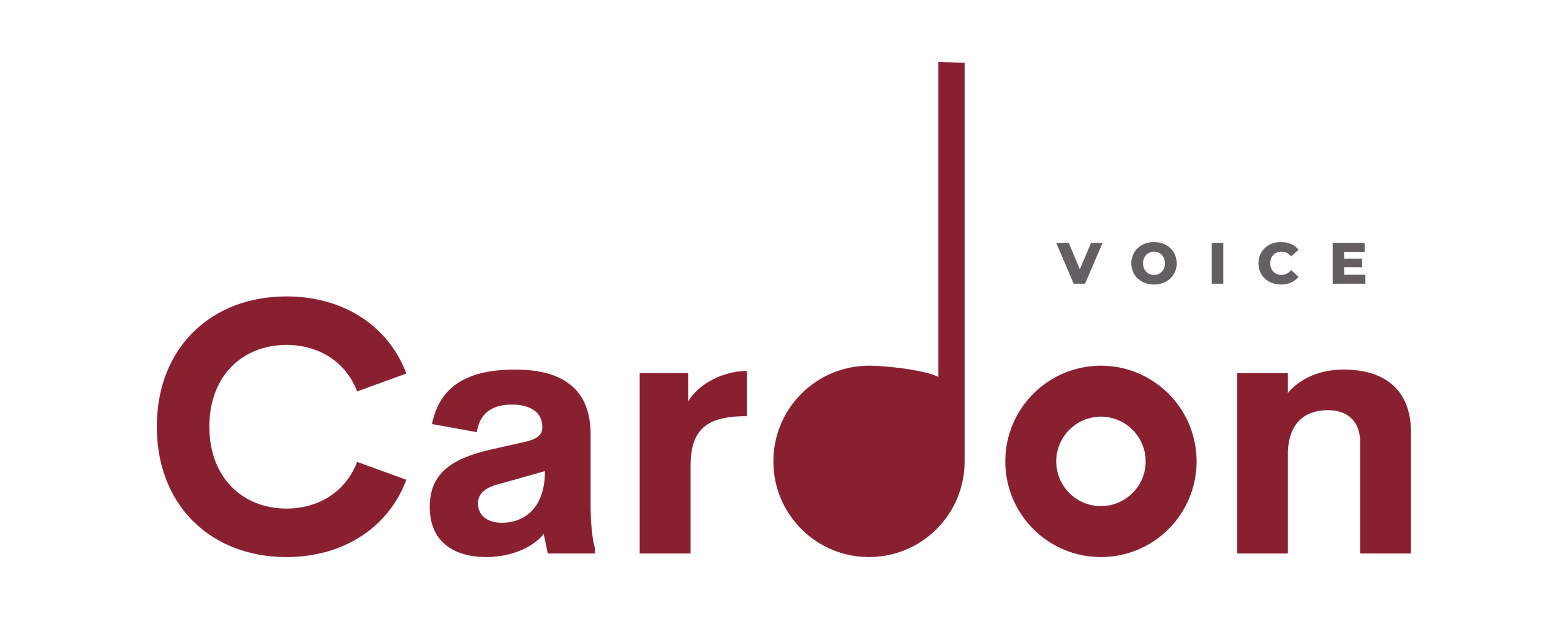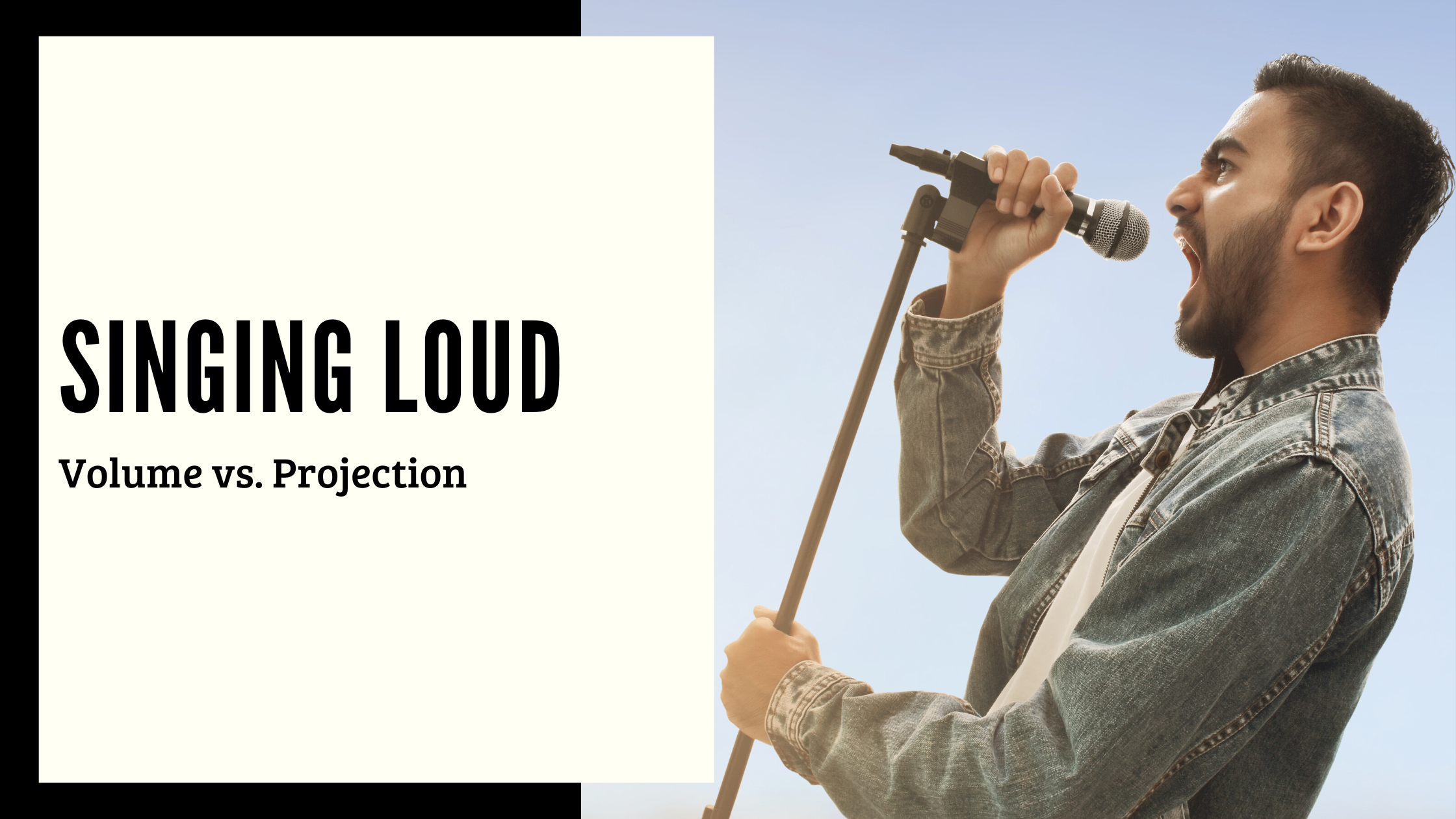As singers, we all want to be heard. Whether you’re singing a style that relies on microphones or on acoustic sound production, you’ve probably thought to yourself about whether or not you were loud enough. Of course, volume and projection aren’t entirely the same thing, but could one help inform the other?
Per dictionary.com, Volume of sound is defined as “the degree of sound intensity or audibility; loudness” whereas Projection of sound is defined as “the act of communicating distinctly and forcefully to an audience”. The volume of sound is measured in decibels; this measurement is literally a quantification of the intensity of sound waves. Of course, the intensity of sound waves is going to vary greatly by different pitches– lower pitches have longer wavelengths (lower frequency) than higher pitches (higher frequency), so lower pitches are harder to “project” since they are naturally lacking in intensity.
For many singers, the fact that their lower range (commonly the pitches they access for speech all day every day) feels stronger (again, it’s working out all the time!) leads them to think of it as ‘louder’, whether or not this is actually true to their listeners. Because the low voice often feels stronger, it’s also true that the low voice is often overworked for volume! As singers who rely on habits like these try to sing higher and higher, they may fall into the trap of carrying extra force up into their range. If you’ve ever tried to sing in this way, you already know that it’s not a sustainable choice!
As your voice transverses your range, the vocal folds stretch and thin to reach higher pitches. This means that any extra force you’re exerting isn’t going to be tolerated– the voice will strain and crack as you bear down on it! Rather, to reach your higher pitches, you’ll likely find it helpful to focus on breath and flexibility; that is, often you must try to sing more softly to rise through your higher registrations. As mentioned, though, your sound may not suffer a loss of volume, thanks to the rising frequency of pitches!
If strong, full sounds are important to you- worry not. Even if you think of singing softly to transition into your higher voice, you can maintain power and fullness quite easily! This is true to some degree whether you are a microphone singer or not (of course, psychologically this may be easier for microphone singers to trust– after all, the mic is there to be your volume!). The name of the game here is Projection: focusing on clarity and the distance your sound will travel, vs. focusing on how objectively “loud” it is.
Imagine calling across the street to a friend you see: will you scream as loud as you can? Or, will you try to ‘toss’ your voice over to them? Try this test for yourself out loud. Commonly, we’ll see that “calling” across a distance naturally helps us spontaneously project our voices differently. Notice if you feel your voice resonating (vibrating) in any particular area of your body; common observations are some extra “buzz” in the “mask”– that is, all the resonating cavities in your head– often felt as vibration in the cheekbones, roof of the mouth, ‘moustache zone’ or even forehead. When you called over a distance, did you feel any push in your throat? Very likely, you worked less hard for just as much clarity by eliminating any extra work in your throat. If so, next time you want to make a powerful sound, think of how far you’ll throw your voice, not how “loud” it is!
Applying this “call” feeling in our singing can help simplify your efforts down to feelings your body already knows how to do efficiently. This adjustment sometimes helps singers create a more seamless mixed voice, and/or helps fill in a “thin” feeling head voice. We’re all shaped differently and will experience things differently, so trust your own perception. As always, Cardon Voice encourages you to experiment with sounds, trust your feelings, and find the right fit for your voice and your musical goals! Want to learn more? Schedule a free consultation to chat with a Cardon Voice teacher.

